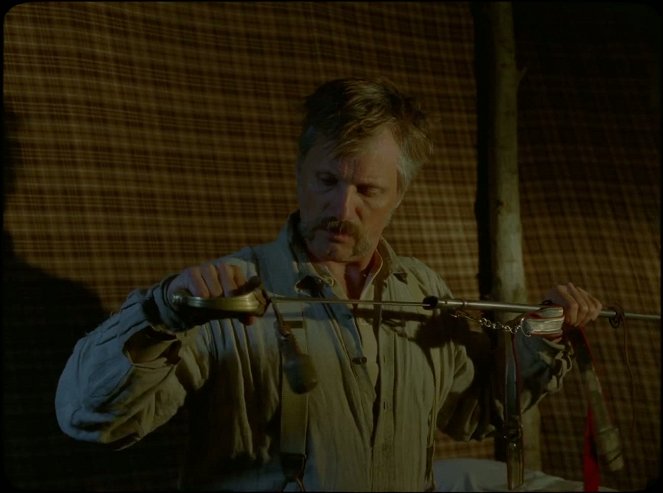Directed by:
Lisandro AlonsoCinematography:
Timo SalminenComposer:
Viggo MortensenCast:
Viggo Mortensen, Ghita Nørby, Viilbjørk Malling Agger, Esteban Bigliardi, Diego Roman, Adrián Fondari, Misael Saavedra, Brian PattersonVOD (1)
Plots(1)
In the late 19th century, a Danish engineer travels with his 15-year-old-daughter to the wilderness of Patagonia in the service of the Argentine army as part of its campaign to civilize the landscape and eradicate the defiant native population. One night, however, the young girl and her lover run off in search of a better life beyond the wasteland. The father sets out in pursuit, desperate to find his daughter alive in this inhospitable environment. However, his journey soon becomes an existential experience that extends beyond both time and space. Shot in an old image format, Alonso's film is more plot-based than his previous work, but still retains a sense of defiance towards standard expectations as it deftly avoids any literal interpretations. According to one of the first responses, it is a "metaphysical road movie in which origin and destination are less important than the journey itself." (Karlovy Vary International Film Festival)
(more)Reviews (1)
How do you capture the endless expanse of the steppe and how do you fit its width into a film shot? A different filmmaker would probably choose a wide-angle format and a moving camera, but not Alonso. It's as if the awareness of the unattainability of the desert led the author to exactly the opposite approach because the boundlessness of space and time cannot be tamed, but it can be highlighted. This is done precisely by following a procedure where we are forced to observe only a single fragment of the universe with the knowledge that the whole and an even greater beauty than what we see still lies outside. The unattainability of the infinite whole has always forced humanity to choose a single static perspective that was supposed to substitute for the universe - and the filmmaker is similarly forced to put the tripod somewhere. The same applies to time as to space - it, together with the young protagonist, in a figurative sense, overflows through its temporary fragments in history and forces us to see each specific incarnation as a transient form within a broader whole. /// Praise to Alonso and Salminen above all for the fact that their film images are truly beautiful and not kitschy, as they could have easily turned out.
()

